Position paper: Mandatory sodium reduction targets for processed foods
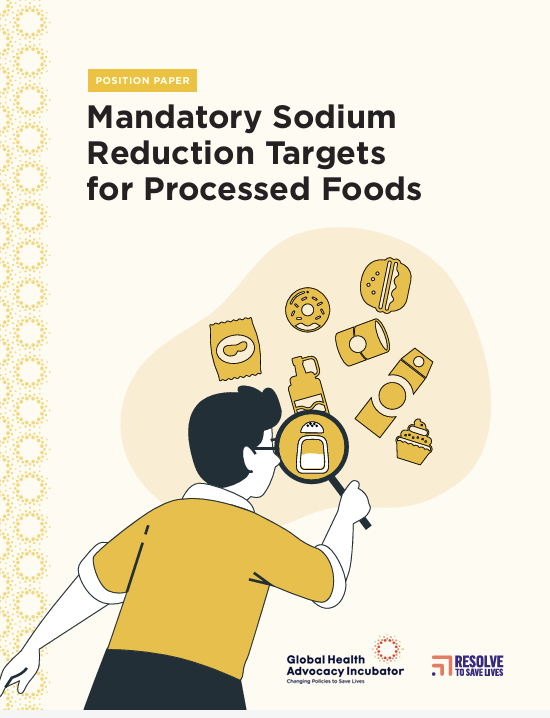
This position paper from Global Health Advocacy Incubator (GHAI) developed in partnership with Resolve to Save Lives, outlines the key steps needed to establish effective mandatory sodium reduction targets, informed by country experiences where these policies have been successfully implemented. It also offers clear, evidence-based recommendations to guide policymakers and advocates in shaping and advancing […]
Policy brief: Front-of-package warning labels give consumers the freedom to choose healthy
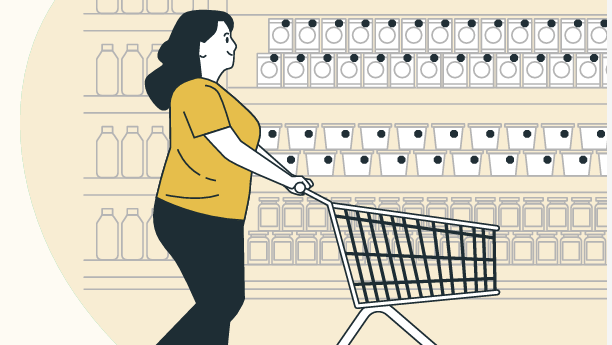
This policy brief developed by Global Health Advocacy Incubator (GHAI) and Resolve to Save Lives highlights the critical role of mandatory front-of-package warning labeling (FOPL or FOPWL) in combating diet-related noncommunicable diseases (NCDs) such as diabetes, cardiovascular diseases, and obesity and saving millions in health care costs. Warning labels empower consumers with easy-to-understand nutrition information […]
Using nutrient profile models to underpin key nutrition interventions
New RTSL guide explores how to use nutrient profile models to rank food based on nutritional composition and provide the scientific foundation for healthy and comprehensive nutrition policies.
Nigeria launches National Sodium Reduction Guideline
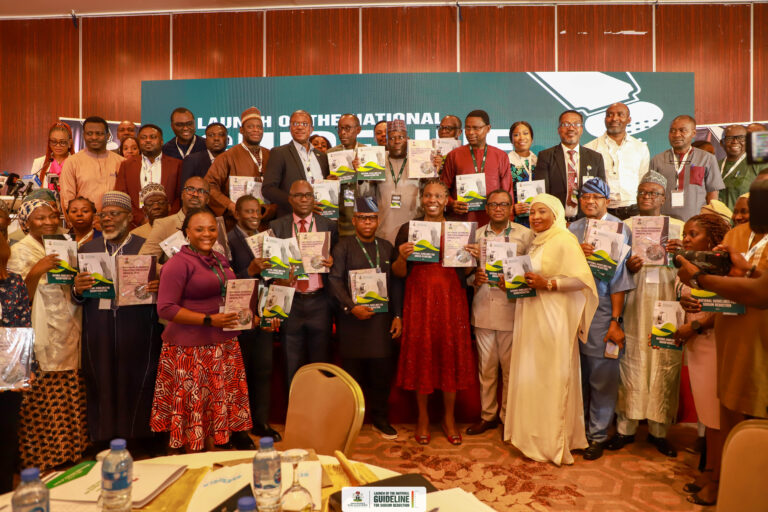
Evidence-based interventions include mandatory limits on sodium content in processed and packaged foods.
Resolve to Save Lives at EPI | Lifestyle Scientific Sessions 2025

High blood pressure too often goes unnoticed. Watch the American Heart Association’s interview with Dr. Renu Garg as she details how Resolve to Save Lives works to control this silent killer with universal screening and other scalable strategies.
Stakeholders gather to protect Indonesians against artificial trans fat and high salt foods
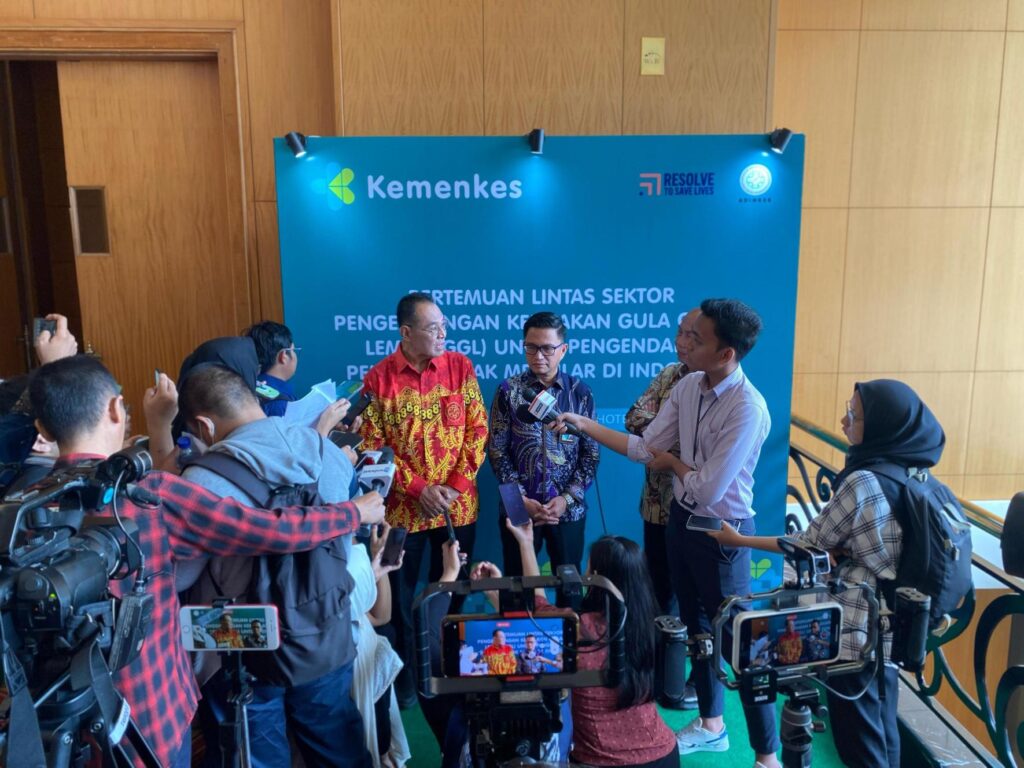
Indonesia gears up to build a comprehensive food policy that eliminates harmful trans fat and reduces excess sodium to reduce a high burden of high blood pressure.
For WSJ, our President and CEO Dr. Tom Frieden talks nutrition in the U.S. and beyond

What should the new U.S. administration do to change American diets for the better?
Resolve to Save Lives’ new global guidelines for healthy public food procurement

Setting healthy nutrition standards for food served in schools, public hospitals, childcare facilities and government workplaces is a powerful strategy for saving lives.
Meet GIFNA – WHO’s upgraded nutrition policy database
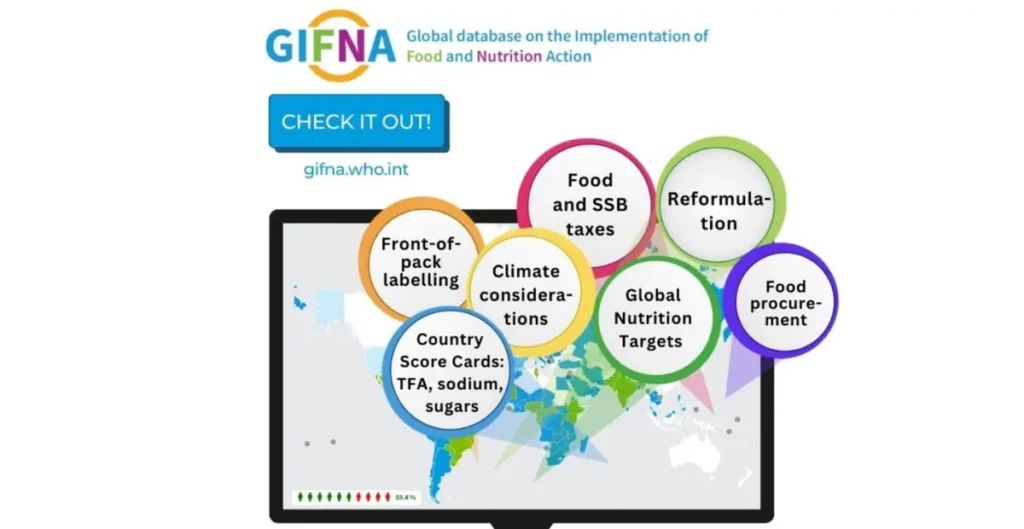
Nutrition policymakers and advocates can use WHO’s upgraded policy database to improve food environments for all.
“Reduced-sodium salts…are a great alternative to regular salt”
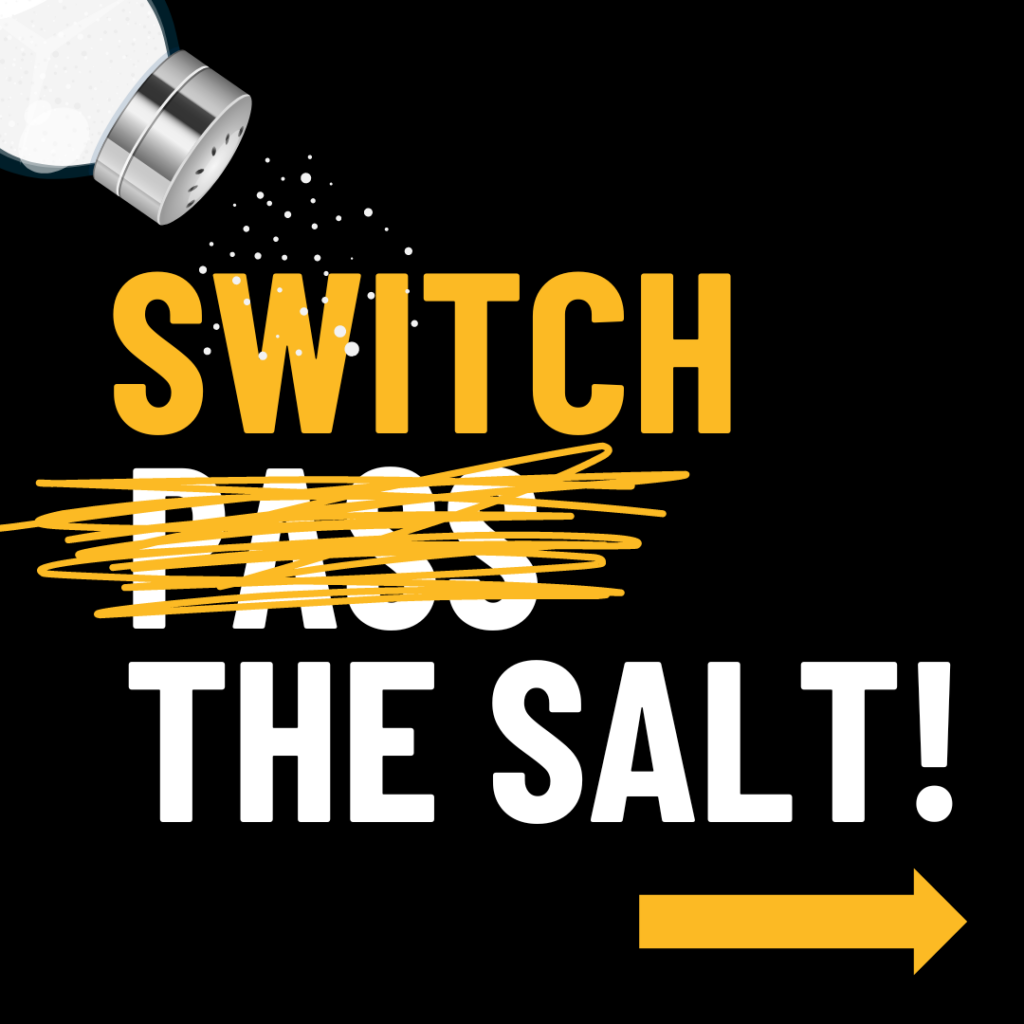
In a new op-ed for Health Affairs Forefront, Professor Bruce Neal, Executive Director for The George Institute for Global Health and our own Dr. Tom Frieden, President and CEO of Resolve to Save Lives, call for switching the salt we use to a healthier alternative—potassium-enriched, low-sodium salts—to improve heart health. Low-sodium salts look and taste just […]
Balancing sodium reduction and iodine nutrition for heart health
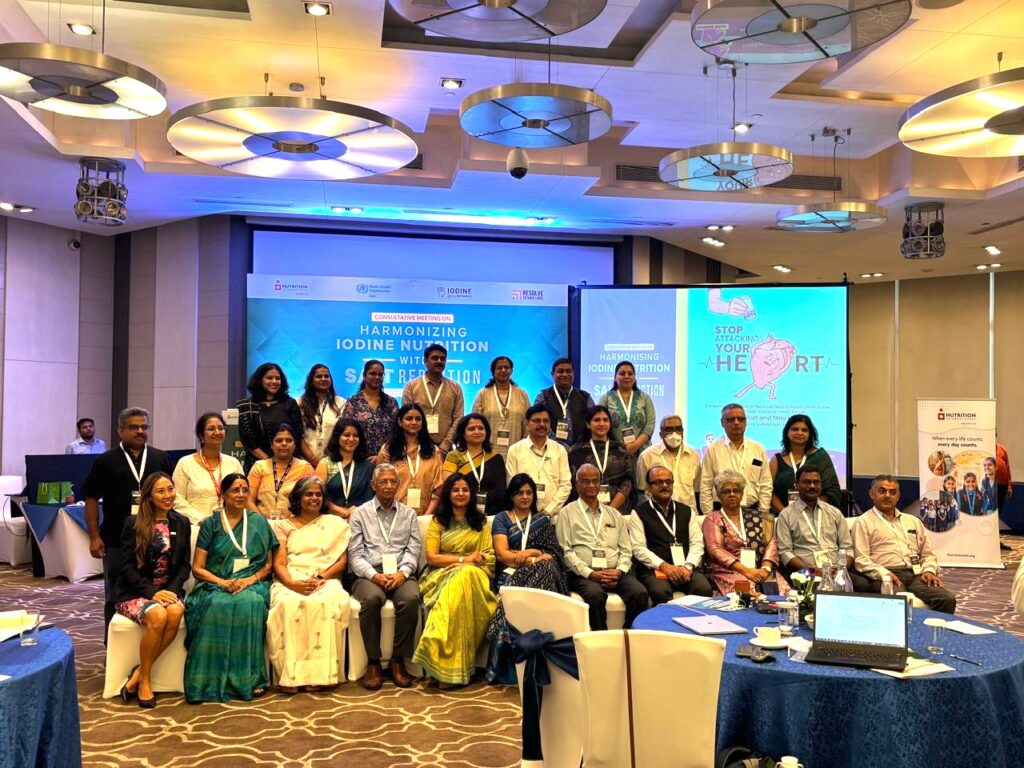
Salt is often fortified with iodine, a necessary ingredient for health. But too much sodium, the main ingredient in salt, is bad for the heart. RTSL recently co-hosted a meeting on “Harmonizing Iodine Nutrition with Salt Reduction” in collaboration with Nutrition International, WHO India, and the Iodine Global Network. Discussions focused on the importance of […]
Resolve to Save Lives at CARDIOBASE 2024
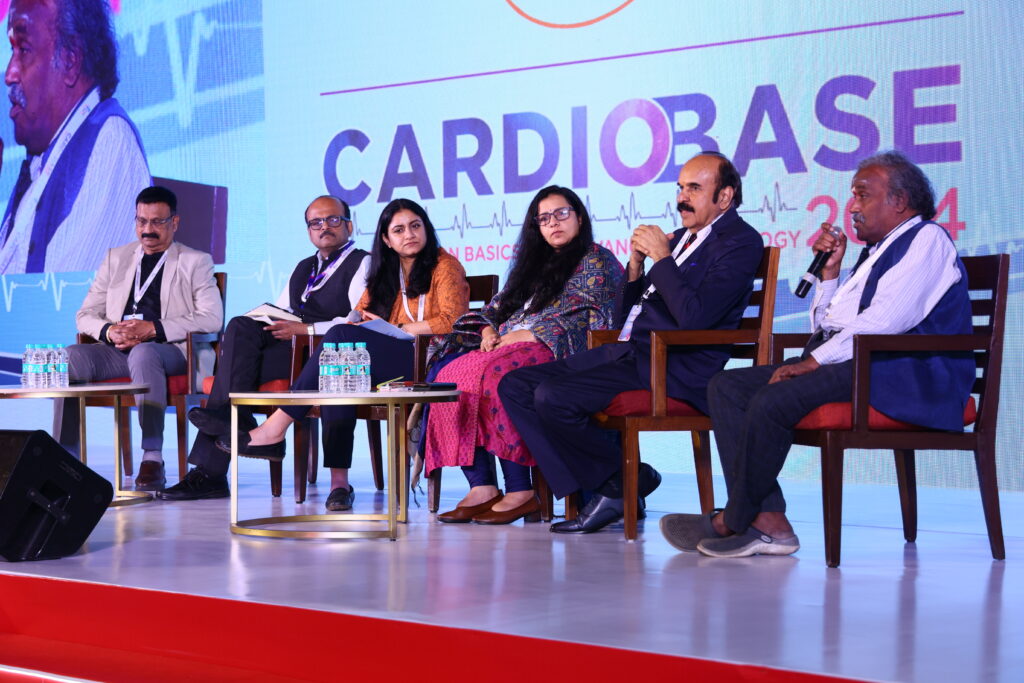
The RTSL India team discussed ‘Unhealthy Diets and Cardiovascular Disease’ at CARDIOBASE 2024, emphasizing the importance of salt reduction, trans fat elimination, and healthier oil adoption.
RTSL experts take home 2024 Paul Dudley White International Scholar Award
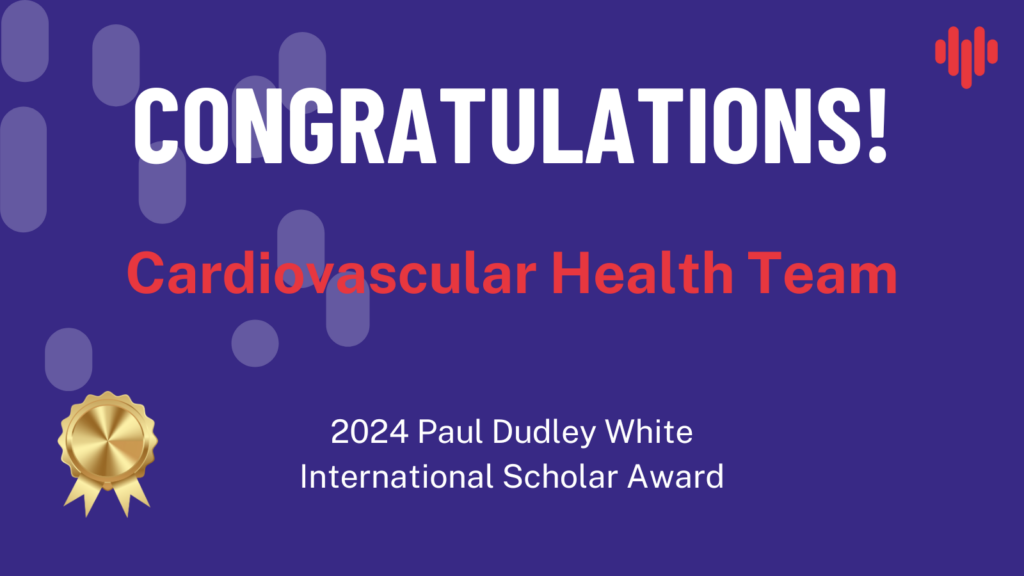
Our team received the 2024 Paul Dudley White International Scholar Award for an abstract on increasing usage of low-sodium iodized salt.
New policies in Nigeria will help save lives from heart disease

In partnership with Resolve to Save Lives, Nigeria’s Federal Ministry of Health and Social Welfare unveiled a bold new strategy.
Salt reduction event at 77th World Health Assembly
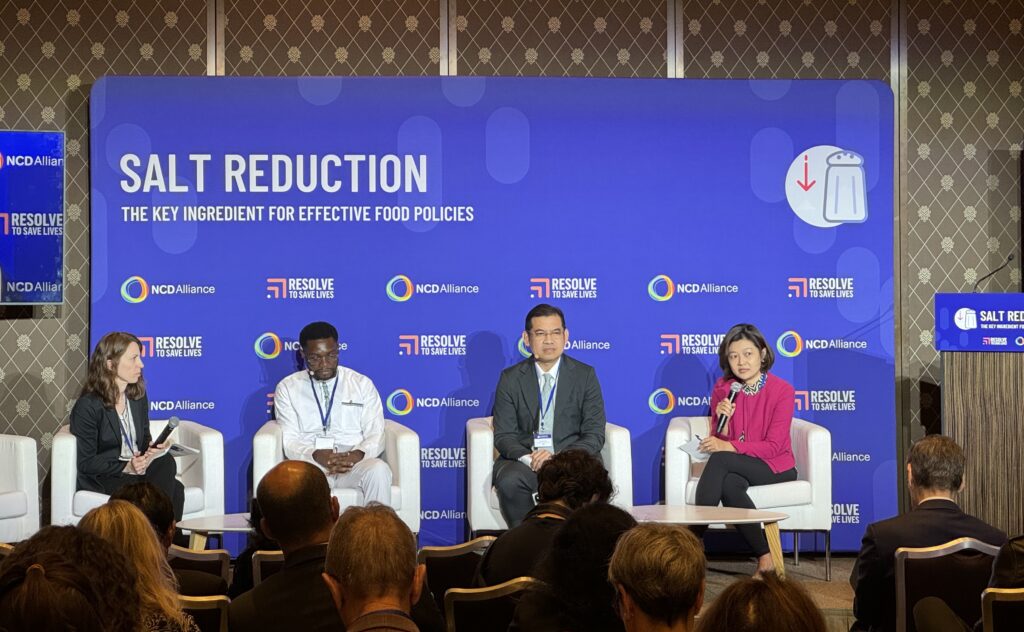
At the event we co-hosted with the NCD Alliance and WHO, Bangladesh, Malaysia, Nigeria, and Singapore made new commitments to implement comprehensive policies that will protect at least 37,000 people from the harms of eating too much salt.
Colombia leads on reducing salt-related diseases

Watch: How Colombia is tackling non-communicable diseases through policies that improve heart health by reducing salt intake.
Introducing Resolve to Save Lives: India
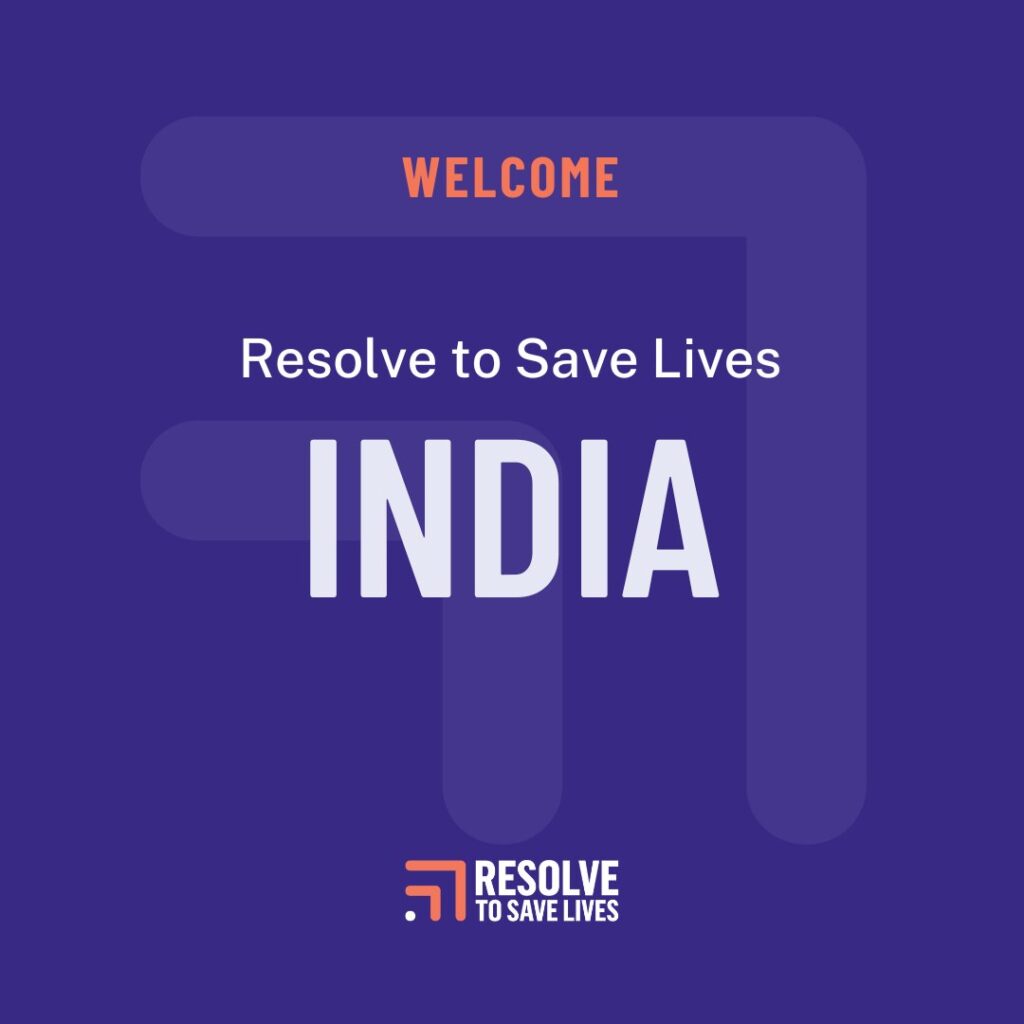
Our experts in New Delhi look forward to continued progress in blood pressure control, trans fat elimination and sodium reduction.
WHO’s 2nd edition Sodium Benchmarks report

A webinar highlights lessons learned from the first report, current progress on global salt reduction, and next steps countries can take to promote heart health.
Salt reduction progress and lessons learned from Thailand

In a new article for The Lancet, Resolve to Save Lives joins the Thai Low Salt Network to discuss Thailand’s nationwide salt reduction initiative.
New tool helps governments combat nutrients of concern

Watch a webinar exploring GHAI’s new Nutrient Profile Models tool for developing healthy food policies
Salt substitutes can help treat high blood pressure
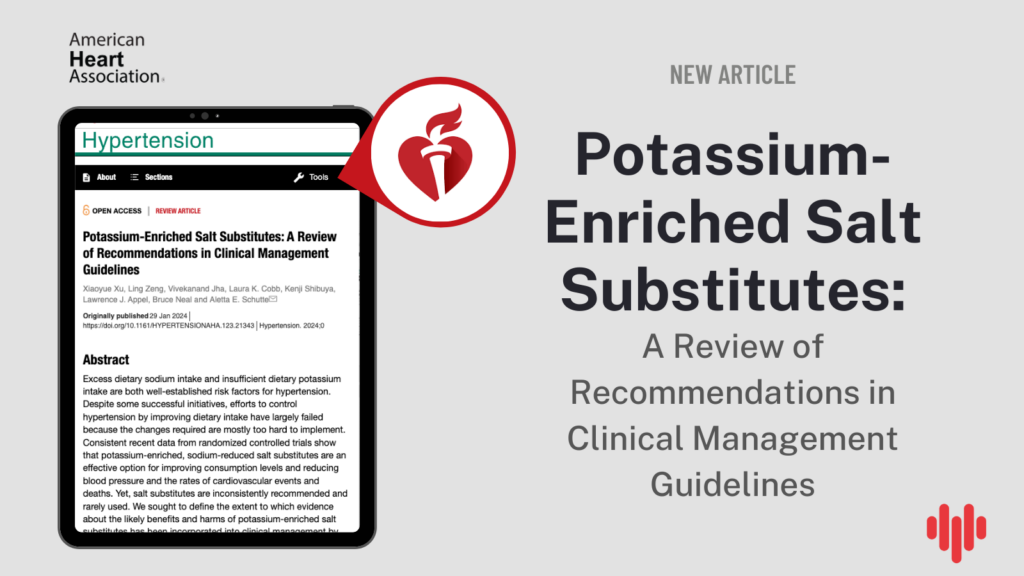
We joined international experts in the call to include salt substitutes in the treatment for high blood pressure.
Salt reduction gains momentum in Thailand
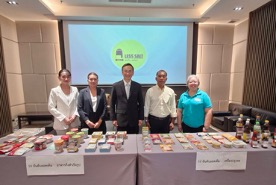
Partners in Thailand advocate for a focus on salt reduction in government policies.
Healthier meals in schools throughout Karnataka, India
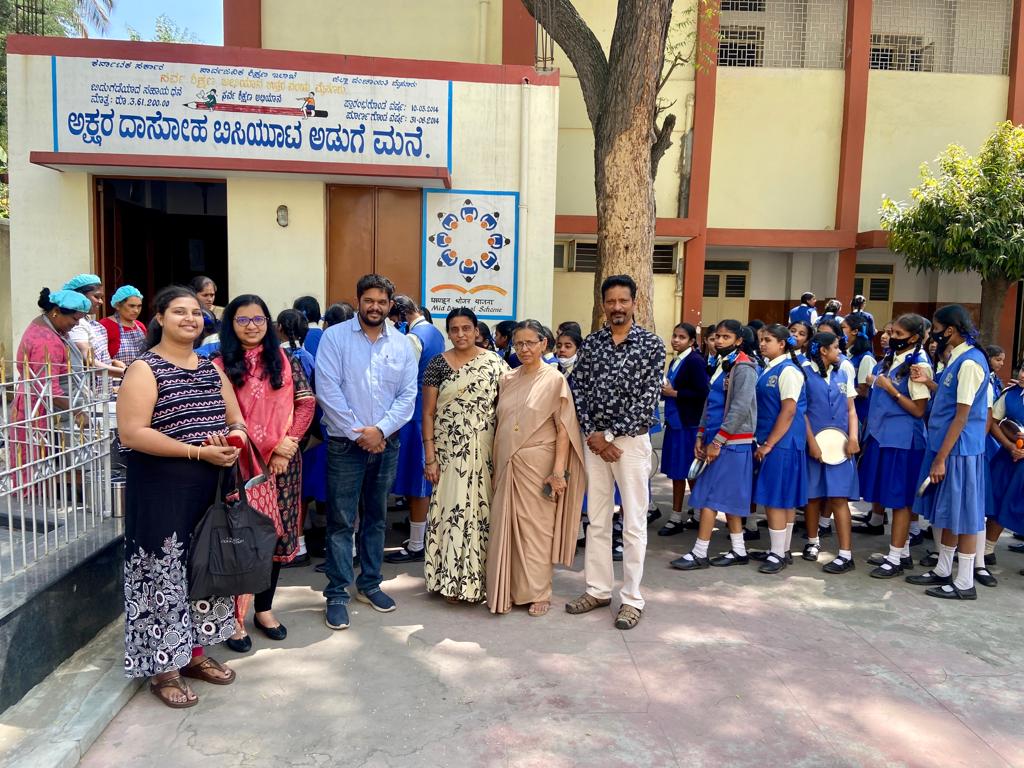
A successful pilot program will be expanded statewide, giving children across Karnataka access to nutritious school meals with less salt—a known risk factor for high blood pressure, even among young people.
Protecting children from excess salt in Nepal
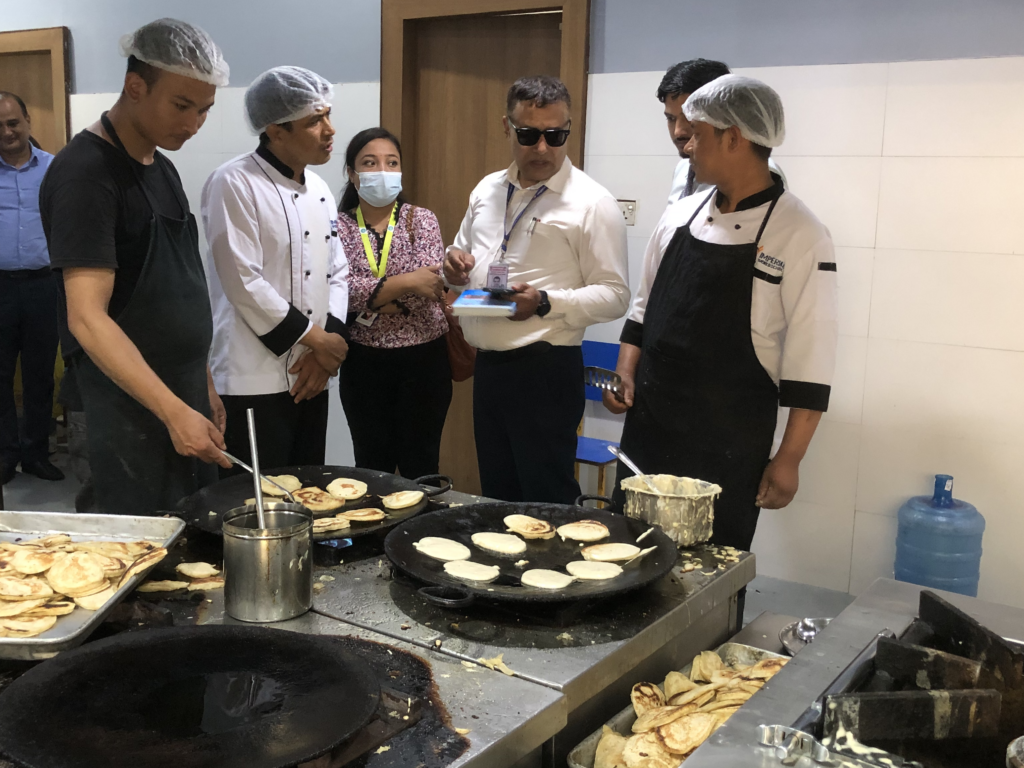
More children in Nepal will soon have access to healthy foods with a new commitment to pass nutrition standards, including limits on sodium content, in schools and public facilities.
Salt Awareness Week: May 15-21, 2023
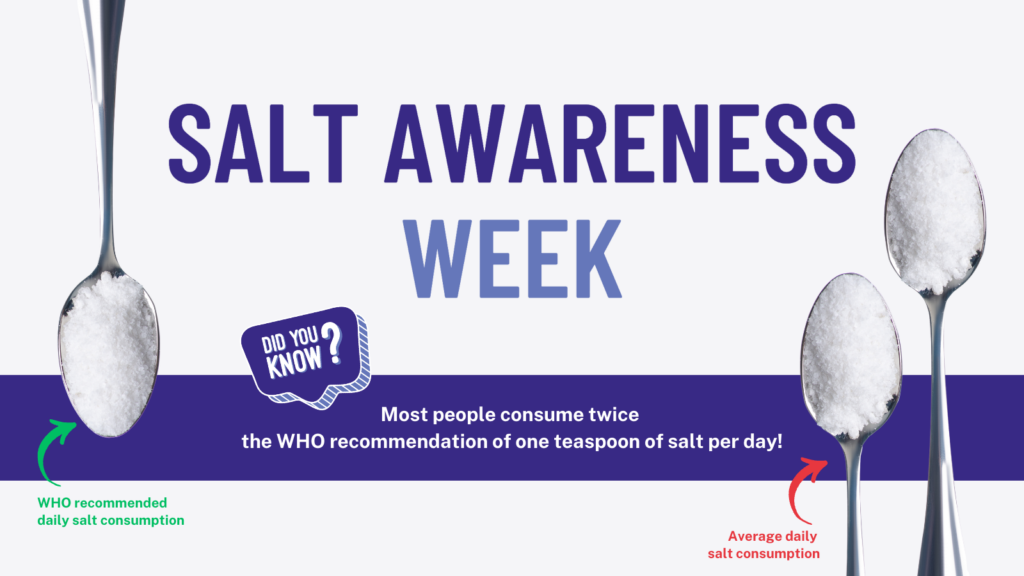
Resolve to Save Lives is highlighting the risks of eating too much salt and sharing ways people can cut back.
Reducing cardiovascular disease through salt reduction
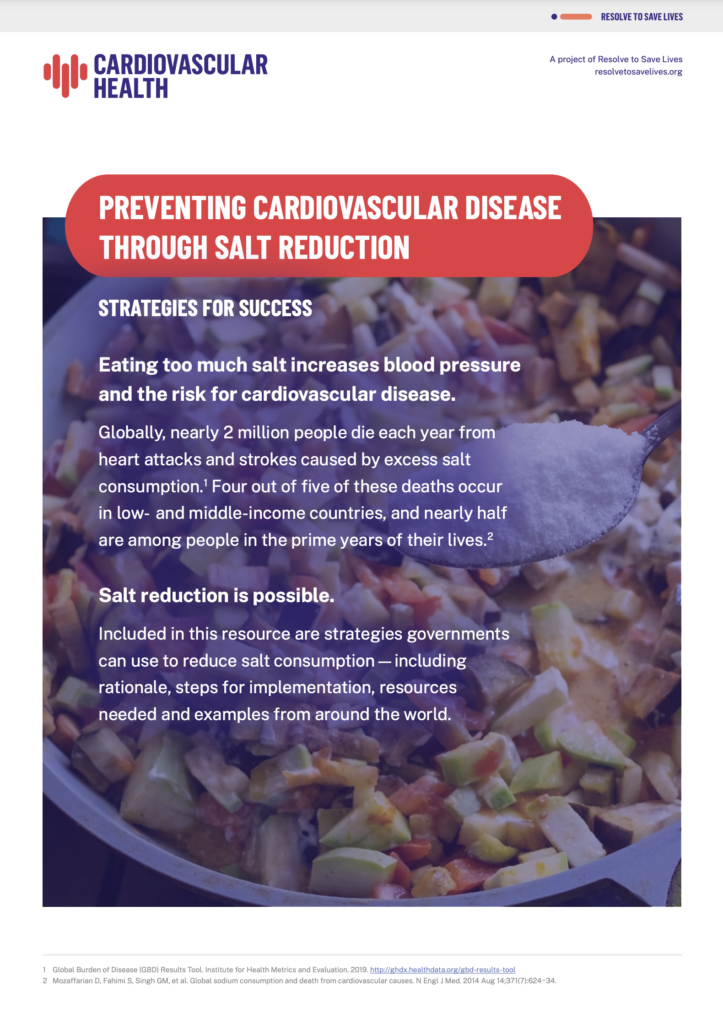
An overview of RTSL’s approach to sodium reduction, including summaries of key interventions (sodium targets, FOPL, marketing restrictions, food procurement and service, low-sodium salt, policy advocacy and communications)
Quezon City’s healthy public food procurement policy: a model for the Philippines and beyond

Supporting public health by establishing nutrition standards (including limits on salt, sugar and trans fat) for all food suppliers to public offices.
Sodium reduction policies could save 7 million lives by 2030
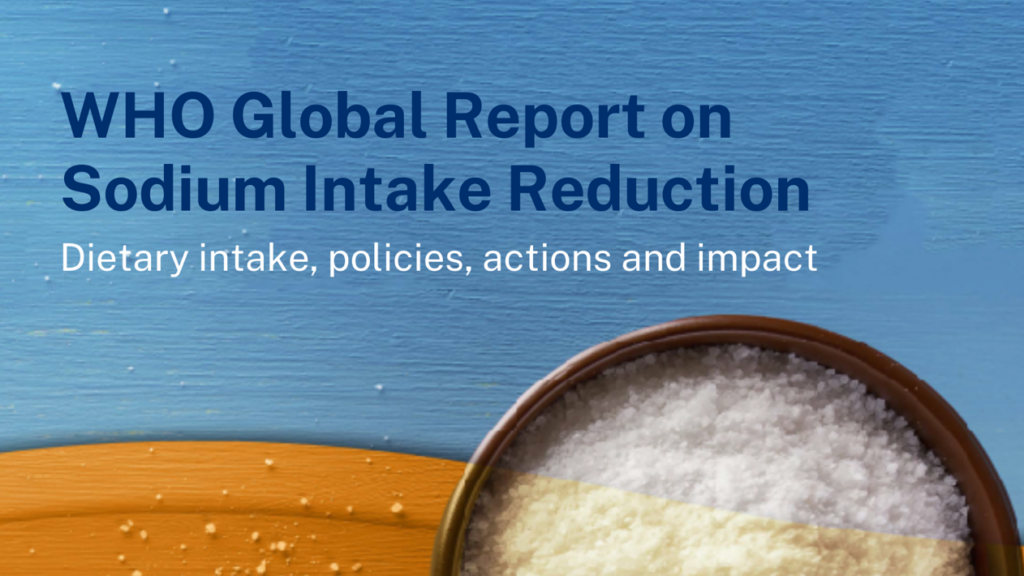
WHO’s first-ever Global Report on Sodium Intake Reduction shows that the world is off-track.
New Global Nutrition Database for Packaged Foods
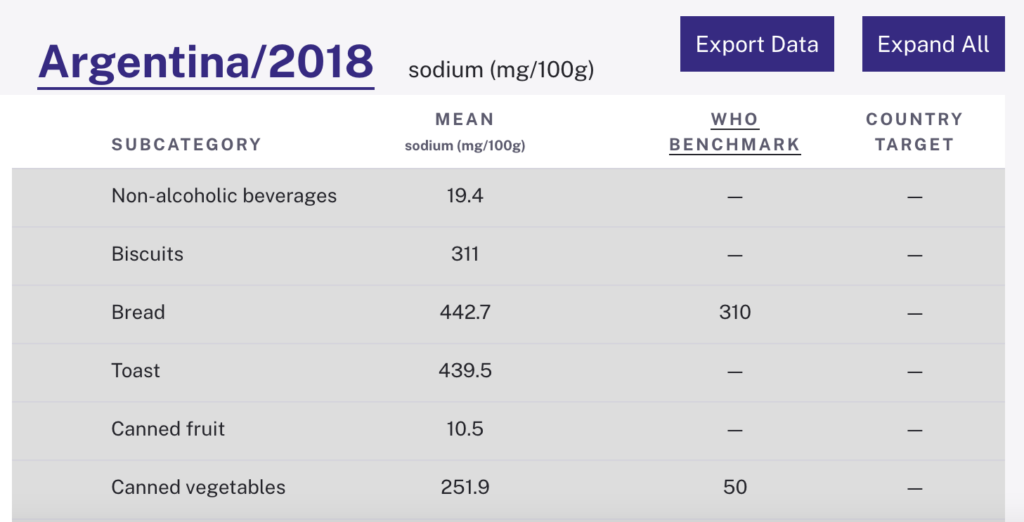
We welcome submissions of new data as we expand the database!
India is on the way to gaining independence from its biggest killer, cardiovascular disease
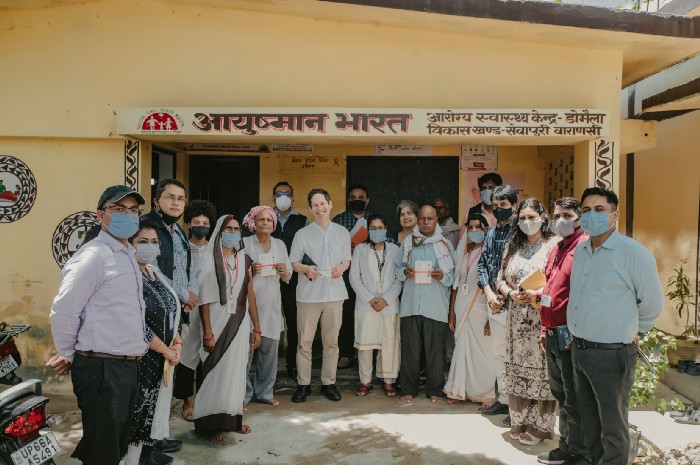
For the Economic Times, Dr. Tom Frieden, wrote about India’s impressive achievements in improving heart health.